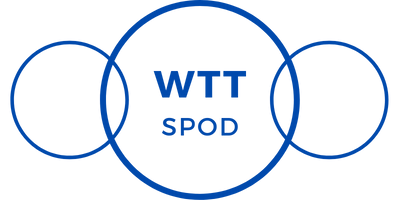MADRID, 4 Feb. (EDITIONS) –
We are immersed in a pandemic and we need good news. One of the diseases that is still there, despite COVID-19, is cancer. Unfortunately, all of us around us have a family member, friend, or acquaintance who is affected, or has been at some point in their life. But there is good news in the field of cancer.
In Spain, some 275,000 new people are diagnosed each year with all types of cancer ; Of these, the most frequent are first of all the colon and rectum; the prostate; and mom's; without forgetting the lung, with all that it implies, according to data from the Spanish Society of Medical Oncology (SEOM).
To find out the most important news and learn more about this disease that gives us so many headaches, we interviewed Dr. César Serrano, medical oncologist and principal investigator of the VHIO Translational Sarcoma Research Group (Vall d'Hebron Institute of Oncology) at Infosalus ), winner of the VIII FERO Scholarship in 2014 and who currently receives structural aid from this foundation to promote his laboratory on sarcomas.
WHAT DOES CANCER CONSIST OF?
In the first place, and to contextualize this group of diseases, because cancer is not a single disease , we must be clear about that, we ask you to explain what this pathology consists of.
"Cancer is made up of many diseases that vary and differ depending on the type of cell in the body from which they originate. Probably, in cancer there are three large families, and within these, multiple cancers in turn: there are blood tumors ( leukemias and lymphomas); epithelial tumors (those that come from cells with very specific functions in the body), and then sarcomas (from the body's connective tissue)".
Thus, he points out that cancer appears because our body in some areas loses the ability for cells to grow in an orderly manner. "This type of cell grows without any regulation or order, in such a way that it gets out of control and breaks all the rules of biology," the expert clarifies.
The also member of the SEOM board of directors jokes that this disease "is as old as humanity" and believes that the first references are from ancient Egypt. "Yes, it is true that the most scientific knowledge of what it is began at the end of the 19th century, where it is seen that there is a disorderly proliferation of cells that, although they come from our own body, acquire biological characteristics that make them different and generate this type of proliferation, and that is something consubstantial to us", he details.
WHY IS THERE CHILDHOOD CANCER?
Asked about one of the cancers that most worries us, childhood cancer, Dr. Serrano emphasizes that it is currently considered a rare disease , being "luckily infrequent", and with just over a thousand cases a year.
Specifically, it cites that the most common childhood cancers are leukemia, sarcomas and brain tumors. Regarding its cause, he explains that they are often associated with developmental problems.
"Basically, when the cells are inside the mother's body, they acquire a series of evolutionary modifications to resemble as much as possible the adult cells when they are born. In this transit, some cells do not follow these maturation patterns and end up out of control. of the regulation of the body and grows in a disorderly manner . More or less this is the origin of childhood tumors", he stresses, while also valuing that in our country there are specific reference centers to treat them.
THIS IS THE LATEST GOOD NEWS ABOUT CANCER
Ultimately, the medical oncologist who won the VIII FERO Scholarship in 2014 maintains that, at a general level, innovation in the field of cancer is constant, while highlighting the following good news on the matter that has been given in the last year:
1. From this year I would highlight the study that was presented at the European Congress of Oncology (ESMO Congress 2021), by the Spanish researcher Javier Cortés, current director of the International Breast Cancer Center (IBCC). The scientific work, 'DESTINY Breast-03', in phase III, has reviewed a new treatment in patients with HER2 positive breast cancer . It is "an old drug but intelligently revamped to be more powerful", called 'trastuzumab deruxtecan'. It has been shown to work for this disease and to stop it for years, and has an effectiveness that was unknown until today. For these patients who have the HER2 type, 10-20% of all breast cancer patients, that is, a percentage that involves many patients, and that represents an "incredible benefit", not only because of the number of patients will help them but also because of the novelty in terms of the way of treating, the type of drug.
2. A new drug effective against the KRas protein . Dr. Serrano recalls that a protein that promotes many types of cancer when activated in humans was identified decades ago. One of its discoverers was precisely the Spaniard Mariano Barbacid, who discovered the RAS molecule, and one of those versions is KRas. So this, despite the fact that it has been known for three decades, at this time there had not been a single effective drug to stop the activity of this protein. In this 2021 a drug has appeared, 'sotorasib', the first in all of history that is really effective against mutations in this KRas protein . It has been seen that it has "formidable efficacy" in lung cancer, which have the mutation in this specific protein. "It's something historic," he says.
3. On the other hand, it points to the progress made with the measurement of liquid biopsy (circulating tumor DNA). It consists of taking a blood sample from the patient and there the circulating tumor DNA is looked at to detect tumor mutations in real time and in an evolutionary manner. "In a metastatic patient we cannot be puncturing the lesions every three months to know how the disease evolves. This test allows us to determine the heterogeneity of the tumor in real time. Until now there has been a lot of technology and research on the subject but now the first clinical trials where oncologists are expected to make decisions based on liquid biopsy, with which this allows monitoring and making decisions in real time about treatments, based on protocols, but being aware of how that tumor changes over time, in such a way that individualized treatments are achieved for the patient. It is a formidable research area today", celebrates the Vall d'Hebron specialist.
4. The whole subject of immunotherapy, a type of cancer treatment with which considerable progress has been made in the last 5-10 years and with which it is sought that our own body's defenses attack the tumor. All tumors have a series of proteins or molecules that make them invisible to the body's defenses. So, this technique seeks to block those defenses that make the tumor invisible. By doing so, the defenses can fight the tumor. There have been advances in many fields in this area. It should be noted that last year in certain types of stomach cancer it has been seen how the combination of an immunotherapy drug, 'pembrolizumab' or the aforementioned 'trastuzumab', are providing "great benefits to patients".
5. It also highlights that a lot of research is currently being done in the field of cancer on protein degradation . "In cancer there are many molecules that cause cancer and promote its progression, but there are many of them that cannot really be blocked, there are no drugs for it, nor are there pharmacological mechanisms against these proteins in particular. So now a new mechanism based on drugs capable of commanding the degradation of these proteins ('Protac'). Increasingly more research is being done on the subject as a therapeutic tool against molecules that we know are very important for tumor growth and for which there are no drugs against them.
6. Lastly, Dr. Serrano highlights that, thanks to the continued efforts of multiple researchers around the world, cancer is being cornered as a deadly disease, and little by little the life expectancy of these patients is being increased. and also prolong your quality of life.

